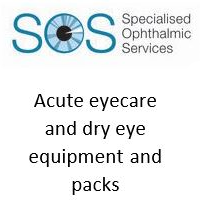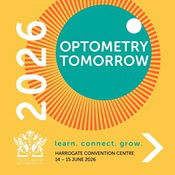General News
Warn Parents about the dangers of sun damage
Warn Parents about the dangers of sun damage on children’s eyes
Parents warned about the dangers of sun damage on children’s eyes as heatwave hits the UK
Seven simple tips for protecting your eyes from UV and why children’s eye health is most at risk
Today, experts from the Association of Optometrists are advising the public to protect their eyes by packing sunglasses as well as sunscreen as the UK braces for the longest heatwave in 50 years.
In a poll with the public, less than half (46%)[i] said they owned a pair of sunglasses. Only a quarter of parents safeguard their children’s eyes by always putting sunglasses with UV protection on them – with nearly a third (31%) admitting they rarely or never do.
UV damage increases the risk of sight-threatening conditions such as cataract, age-related macular degeneration and even eye cancers later in life.
Optometrist and AOP spokesperson, Roshni Kanabar explains: “Optometrists often see eye disease related to UV damage but protecting your eyes is easy and simple – wear a good quality and well-fitting pair of sunglasses that has a British Standard, CE, or UKCA mark.”
“It’s estimated that 80% of UV damage happens before we reach the age of 18[ii] and children are most at risk since their pupils are bigger and their lenses let in 70% more UV compared with an adult’s. Children’s activities such as being outdoors for longer and swimming, where light reflects off the water, can generally make exposure higher too. So, it’s especially important for parents to think about how to best protect their children’s eyes – particularly when it’s not always easy to keep their sunglasses on.”
The Association of Optometrists offers seven tips for everyone to look after their eyes in the sun:
1. Wear sunglasses which carry a British Standard, CE, or UKCA quality mark, even if you are using contact lenses with a UV filter, because this will help protect the skin around your eyes, as well as the eye itself
2. Make sure children wear sunglasses; their pupils are bigger than adults’, making the risk of sun damage much higher
3. Choose sunglasses that sit closer to the eye and wraparound, blocking out more light
4. Check that your prescription lenses include a UV filter, for everyday protection
5. Wear a wide-brimmed sun hat for extra protection
6. Avoid sunglasses without a British Standard, CE, or UKCA mark or an indication of UV protection – low quality tinted lenses, without a UV filter, can do more damage than not wearing sunglasses at all, because they cause the pupil to dilate, letting in more light
7. If you are experiencing sore, dry, or watery eyes, it may be because you are spending more time in air-conditioned buildings. There are lots of different types of drops and gels that can help your eyes feel more comfortable.























